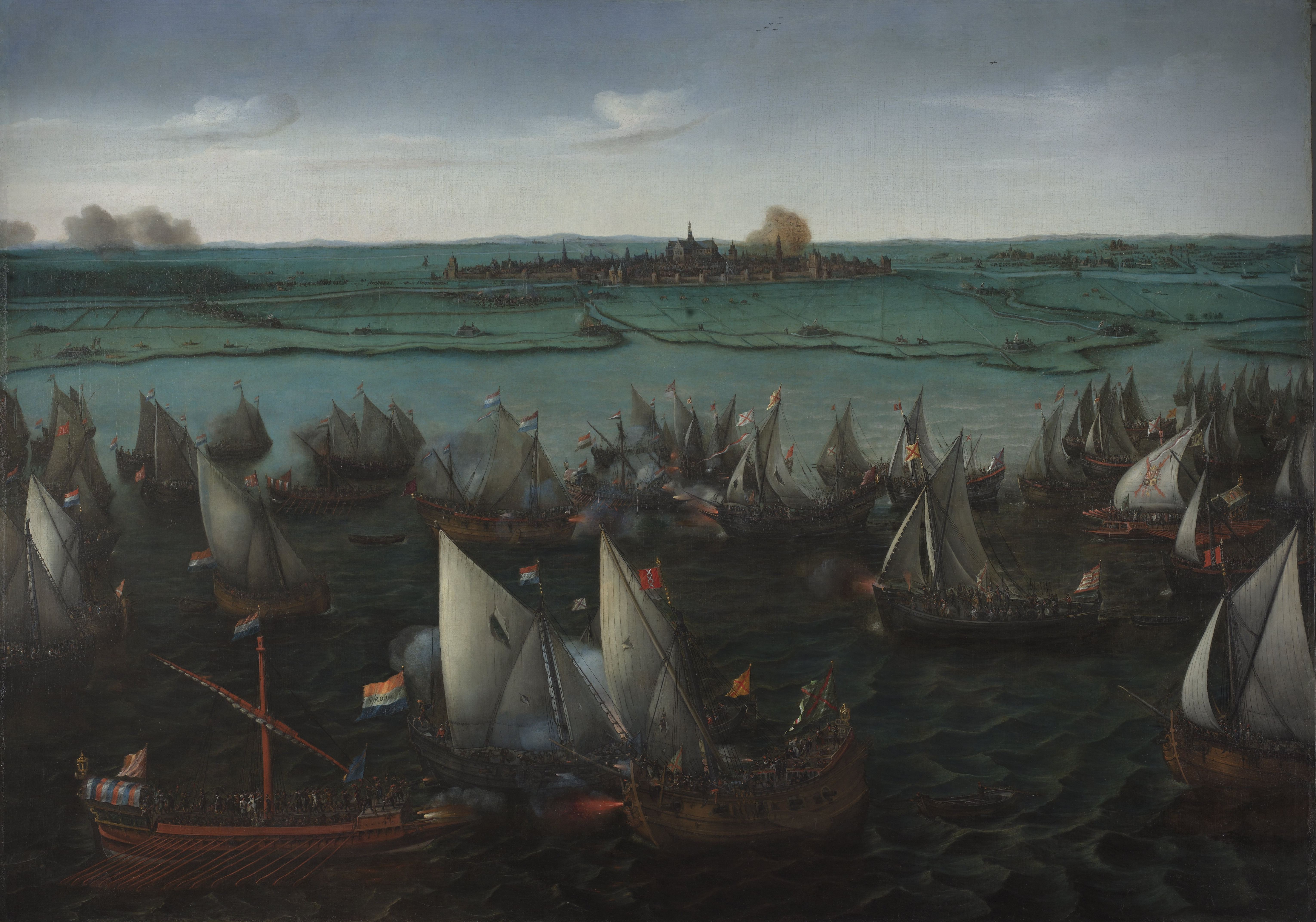
Geuzen
Geuzen (Dutch pronunciation: [ˈɣøːzə(n)]; lit. 'The Beggars'; French: Les Gueux) was a name assumed by the confederacy of Calvinist Dutch nobles, who from 1566 opposed Spanish rule in the Netherlands. The most successful group of them operated at sea, and so were called Watergeuzen (Dutch pronunciation: [ˈʋaːtərɣøːzə(n)]; lit. 'Water Beggars'; French: Gueux de mer). In the Eighty Years' War, the Capture of Brielle by the Watergeuzen in 1572 provided the first foothold on land for the rebels, who would conquer the northern Netherlands and establish an independent Dutch Republic. They can be considered either as privateers or pirates, depending on the circumstances or motivations.[1][2]
This article is about the 16th century opposition to Spanish rule. For other uses, see Gueux.



